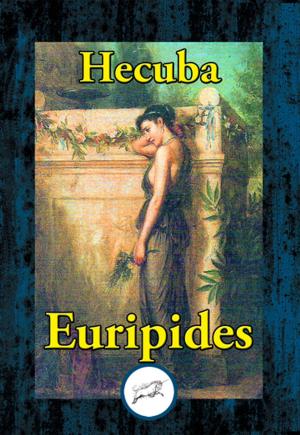Home Education
With Linked Table of Contents
Nonfiction, Reference & Language, Education & Teaching, Home Schooling| Author: | Charlotte Mason | ISBN: | 9781515407843 |
| Publisher: | Dancing Unicorn Books | Publication: | August 8, 2016 |
| Imprint: | Dancing Unicorn Books | Language: | English |
| Author: | Charlotte Mason |
| ISBN: | 9781515407843 |
| Publisher: | Dancing Unicorn Books |
| Publication: | August 8, 2016 |
| Imprint: | Dancing Unicorn Books |
| Language: | English |
Home Education consists of six lectures by Charlotte Mason about the raising and educating of young children (up to the age of nine), for parents and teachers. She encourages us to spend a lot of time outdoors, immersed in nature and handling natural objects and collecting experiences on which to base the rest of their education. She discusses the use of training in good habits such as attention, thinking, imagining, remembering, performing tasks with perfect execution, obedience, and truthfulness, to replace undesirable tendencies in children (and the adults that they grow into). She details how lessons in various school subjects can be done using her approach. She concludes with remarks about the Will, the Conscience, and the Divine Life in the Child. Charlotte Mason was a late nineteenth-century British educator whose ideas were far ahead of her time. She believed that children are born persons worthy of respect, rather than blank slates, and that it was better to feed their growing minds with living literature and vital ideas and knowledge, rather than dry facts and knowledge filtered and pre-digested by the teacher. Her method of education, still used by some private schools and many homeschooling families, is gentle and flexible, especially with younger children, and includes first-hand exposure to great and noble ideas through books in each school subject, conveying wonder and arousing curiosity, and through reflection upon great art, music, and poetry; nature observation as the primary means of early science teaching; use of manipulatives and real-life application to understand mathematical concepts and learning to reason, rather than rote memorization and working endless sums; and an emphasis on character and on cultivating and maintaining good personal habits. Schooling is teacher-directed, not child-led, but school time should be short enough to allow students free time to play and to pursue their own worthy interests such as handicrafts. Traditional Charlotte Mason schooling is firmly based on Christianity, although the method is also used successfully by secular families and families of other religions.
Home Education consists of six lectures by Charlotte Mason about the raising and educating of young children (up to the age of nine), for parents and teachers. She encourages us to spend a lot of time outdoors, immersed in nature and handling natural objects and collecting experiences on which to base the rest of their education. She discusses the use of training in good habits such as attention, thinking, imagining, remembering, performing tasks with perfect execution, obedience, and truthfulness, to replace undesirable tendencies in children (and the adults that they grow into). She details how lessons in various school subjects can be done using her approach. She concludes with remarks about the Will, the Conscience, and the Divine Life in the Child. Charlotte Mason was a late nineteenth-century British educator whose ideas were far ahead of her time. She believed that children are born persons worthy of respect, rather than blank slates, and that it was better to feed their growing minds with living literature and vital ideas and knowledge, rather than dry facts and knowledge filtered and pre-digested by the teacher. Her method of education, still used by some private schools and many homeschooling families, is gentle and flexible, especially with younger children, and includes first-hand exposure to great and noble ideas through books in each school subject, conveying wonder and arousing curiosity, and through reflection upon great art, music, and poetry; nature observation as the primary means of early science teaching; use of manipulatives and real-life application to understand mathematical concepts and learning to reason, rather than rote memorization and working endless sums; and an emphasis on character and on cultivating and maintaining good personal habits. Schooling is teacher-directed, not child-led, but school time should be short enough to allow students free time to play and to pursue their own worthy interests such as handicrafts. Traditional Charlotte Mason schooling is firmly based on Christianity, although the method is also used successfully by secular families and families of other religions.















